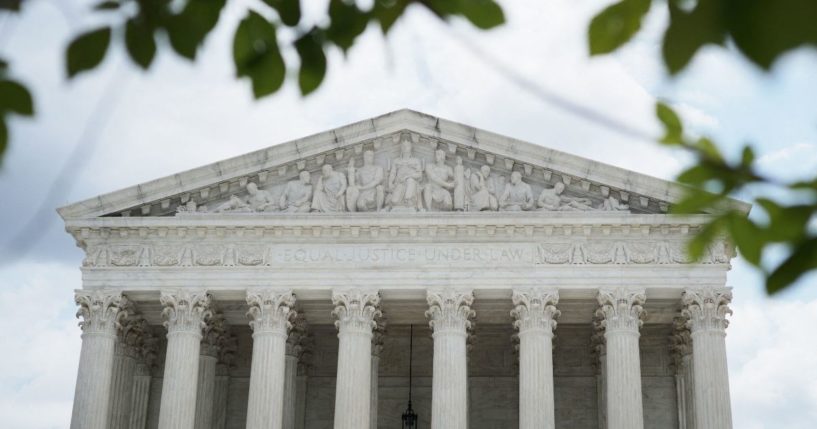
Watch SCOTUS for a Huge Religious Freedom Ruling in Upcoming Term
After an intense October 2020 term that just recently wrapped up, we hope the Supreme Court justices are enjoying some downtime before the new term begins in October.
The court has already accepted 31 cases for review in what is going to be an action-packed October 2021 term.
One of the most recently accepted cases comes from Maine — Carson v. Makin. Here, the court will be asked to decide whether Maine violated the Equal Protection or Religion Clauses of the Constitution in preventing students from using their grant-in-aid money to attend schools that provide sectarian education.
More specifically, there are towns in Maine that do not have public high schools, so the state provides the people who live there a tuition assistance program. The program allows families to send their children to private schools but excludes truly sectarian schools, which is the nature of the challenge in Carson v. Malkin.
Simply put, the state of Maine looks at a school, determines whether that school promotes a religious belief system, and, if so, denies families the ability to use state money to attend that school.
Some believed this issue was resolved in 2020 with a case from Montana. In Espinoza v. Montana Department of Revenue, the Supreme Court held that if a state decides to subsidize private education, it cannot disqualify some private schools solely because of their status as religious.
Now, the court is being asked (by a pair of parents, represented by the Institute for Justice) to decide whether Maine can disqualify a school that has a religious status and is actually a faith-based school.
The petitioners point out in their reply brief that this case squarely presents the religious use-based discrimination issue that this court flagged, but declined to resolve, in Espinoza.
There, the court was looking at a Montana program that provided some tuition assistance to parents who send their children to private schools. The Montana Constitution has a “no aid” provision (banning the use of public funds to support religious activities) that was applied to this assistance program.
The court held that the application of the provision here was a violation of the free exercise clause as it discriminated against religious schools and the families whose children attend or even hope to attend them.
Mike Lento, a New Jersey lawyer, observes that the key to the Maine case is what triggers the 14th Amendment here:
“What’s important to remember about the Equal Protection Clause of the 14th Amendment is that it applies to public elementary and secondary schools because they are considered to be state actors.”
These Maine private schools are not state actors but, as referenced above, some of them exist where public schools simply don’t. What the court will make of this state actor vacuum remains to be seen.
There is also the legal argument here that the Maine program is an “outlier,” unlike the Montana program in Espinoza. That’s going to be one of the key issues the court will need to resolve here. Seeing this case as an outlier (meaning fundamentally different than virtually all other school-choice programs in the nation) could prove to be an uphill battle for the state. The relevant Maine statute, 20-A, § 5204(4), clearly states:
“A school administrative unit that neither maintains a secondary school nor contracts for secondary school privileges pursuant to chapter 115 shall pay the tuition, in accordance with chapter 219, at the public school or the approved private school of the parent’s choice at which the student is accepted.”
A key question the court will need to resolve in Carson is whether the fact that the state is preventing students from using their grant-in-aid money for sectarian schools places a burden on petitioners’ religious exercise.
If so, it violates the Free Exercise Clause, especially in light of Espinoza establishing a uniform standard of interpretation for state no-aid provisions.
It’s not an overstatement to say that the eyes of the nation will be on the Maine case when the court takes it up in its upcoming term. If and how this case modifies or supports Espinoza is critically important to advocates of both religious freedom and those who believe in government money supporting only secular education.
Espinoza prohibited most states from excluding religious schools in their school-choice programs. While school-choice advocates have hailed Espinoza as a victory for religious freedom, critics continue to fear that the 2020 decision could serve to expand the role of states in funding religious schools.
Assuming the court doesn’t see this Maine case as an outlier, its decision here could impact parental school choice for many years to come.
The views expressed in this opinion article are those of their author and are not necessarily either shared or endorsed by the owners of this website. If you are interested in contributing an Op-Ed to The Western Journal, you can learn about our submission guidelines and process here.
Truth and Accuracy
We are committed to truth and accuracy in all of our journalism. Read our editorial standards.
Advertise with The Western Journal and reach millions of highly engaged readers, while supporting our work. Advertise Today.












